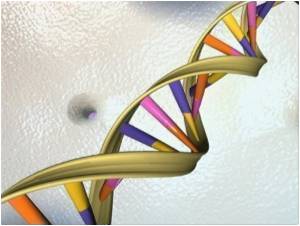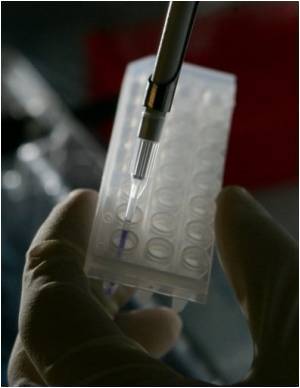Meet Tamara Brown, the thirty three-year-old behavioural geneticist and entrepreneur behind the organisation called GenePartner, a firm determining biological compatibility by matching the DNA.

The idea is inspired by a 1995 research by Professor Claus Wedekind at the University of Bern, wherein women smelled T-shirts worn by different men and rated them for attractiveness.
Wedekind discovered the women were most attracted to men whose DNA coding for HLA molecules, a key player in immunity, was most different from their own.
GenePartner, which Brown runs from Zurich with a partner, Joelle Apter, has been successfully operating for two years, having conducted as many as 1,500 tests.
When asked by The Guardian whether smelling T-shirts is a good indicator of compatibility, Brown replied: "It boils down to biological match - the evolutionary drive to produce children who have the best chance of survival. People choose a partner whose immune system complements their own. This has been well-proven in animals and Professor Wedekind wanted to prove the link in humans."
She went on explain the science behind Wedekind's study.
Advertisement
Taking about her firm's services, Brown said: "In his (Wedekind's) experiment, the women never met the men, merely expressed levels of attraction. We took it a step further by analysing established couples to see whether the theory holds - whether successful couples have a significantly higher difference in HLA profiles. And we found that they do."
Advertisement
Brown also emphasised on the sexual factor in their test, saying: "There is a sexual and a social part to a good match - your personalities must be compatible too. However, the sexual part is really important, probably more important than people think because it keeps the relationship younger and more passionate. When you are in love in the beginning, you are a little bit blind and don't see your partner's faults. You don't care if he doesn't put the lavatory seat down. If the chemistry is right, you will stay in this mode for longer. That is what chemistry and passion do for you. Without them, you see things more and get annoyed."
Explaining what their report shows in terms of predicting compatibility, she said: "We give an overall result for biological compatibility, on a sliding scale from very bad to fantastic. We give a measure for levels of attraction. A measure of the type of interest - whether this would be a passionate attraction or a more cosy one. We measure the symmetry of attraction - whether you will be equally attracted to each other or one of you will be more attracted to the other. The majority of successful couples have good symmetry. Finally, we give the probability of a successful pregnancy."
Asked whether the system can make mistakes, Brown replied: "The contraceptive pill can skew things. What tends to happen when the woman is on the pill is that she chooses a partner more similar in HLA profile than you would expect. Then there can be problems later on when the woman comes off the oral contraceptive and the sexual attraction drops."
Source-ANI











